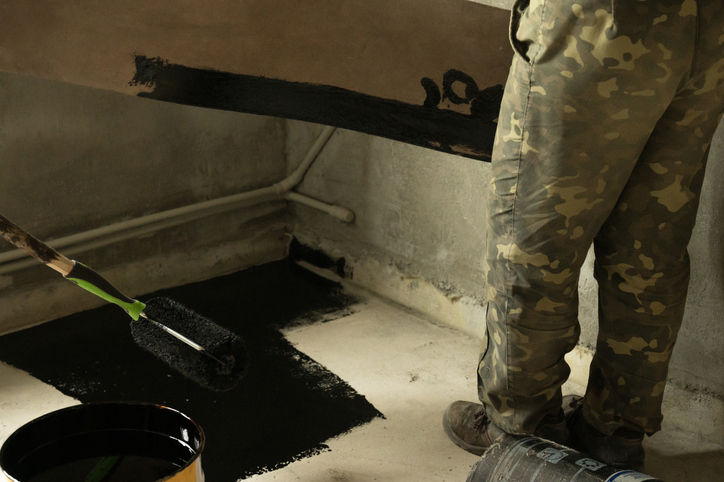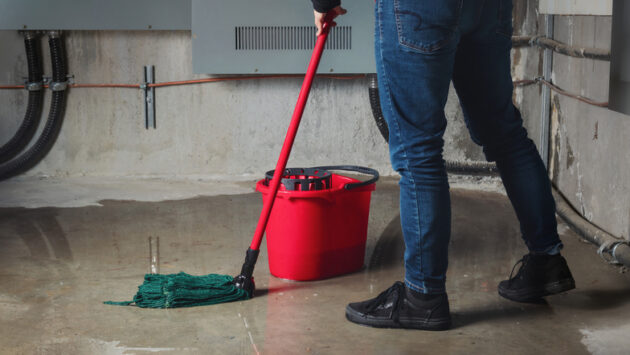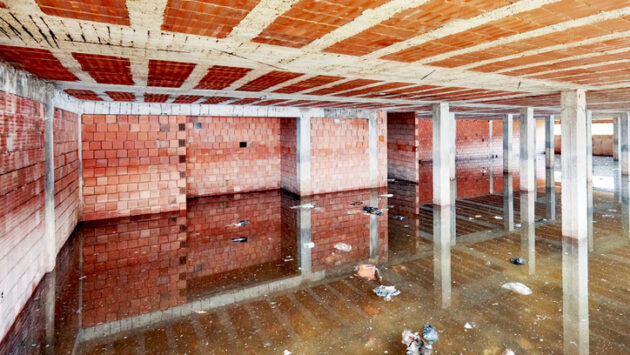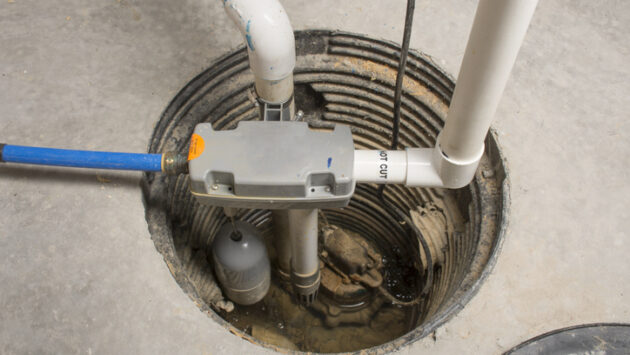Sump Pump Advantages and Disadvantages: Should You Have One Installed in Your Basement or Cellar?
Installing a sump pump in your basement or cellar is one of the best ways to protect your home from flooding and water damage. If you’re thinking about having a pumping station installed, you should weigh the pros and cons to ensure you make the right decision for your home.
We’ve put together this guide with a thorough breakdown of the advantages and disadvantages of installing a sump pump on your property to help you make your decision.
What is a sump pump?
A sump pump or pumping station is a cylindrical pump installed in the lowest part of your basement in a specialised pit (called a sump pit). There are two main types of sump pumps: submersible and pedestal. Pumping stations are recommended for cellars that sit below the water table or properties prone to flooding.
If you have a sump pump installed, it will automatically activate when the water levels rise in your basement. The float switch will rise with the water and switch on the pump. The pump will begin pumping water out of your basement and away from your home’s foundation, protecting it from flooding and costly water damage. The excess water is pumped out through a discharge pipe to a drainage location.
Advantages of a sump pump in your basement
There are many benefits to having a sump pump installed in your basement, especially if it struggles with dampness, moisture, and standing water.
Flood prevention
A sump pump’s main function is to protect homes from flooding. The variable climate in the UK means flooding is becoming increasingly common. If your home floods, it can result in thousands of pounds of damage, destroyed possessions, and lost sentimental items. Installing a pumping station in your basement is the best way to prevent flooding in your home during periods of bad weather.
Mould prevention
Sump pumps can also prevent harmful mould from building up in your basement. Mould needs damp conditions to thrive, so keeping your basement dry and moisture-free through a sump pump prevents mould from growing.
Fire prevention
If your cellar floods, water can get into the electrical circuits and outlets, potentially starting an electrical fire that could cause more damage to your home. Installing a pumping station can reduce the chance of this happening.
Can handle high volumes of water
Unlike a simple drainage system, a sump pump, especially a twin pump, can handle large volumes of water in a relatively short amount of time. This means it can pump water away from the basement even if there’s heavy rain or an unexpected leak.
More effective than external waterproofing
While external waterproofing can help protect your home, it can’t protect it to the same degree as a sump pump. Waterproofing materials can weaken over time, reducing their effectiveness and leaving your property vulnerable to water damage. Additionally, an active pump system is always better than a passive system, such as waterproofing, when it comes to keeping your home dry.
Highly reliable
If sump pumps are maintained properly, they are highly reliable systems to protect your basement or cellar. You can purchase a high water level alarm to notify you when your pump activates and a battery backup system to protect your home even during a power outage.
Disadvantages of a sump pump in your basement
Installing a sump pump in a basement is a big undertaking, and you must understand the installation’s downsides.
Cost
If your cellar has not had a pump installed previously, it won’t have the necessary sump pit for the pump to fit into. Digging a sump pit can be costly and labour-intensive, so you’ll need to consider this when making your decision. However, the protection gained from installing a pump generally makes the cost worthwhile in properties prone to flooding.
Require electricity
Most sump pumps require electricity to function. If there’s a power outage during a heavy storm (or for any other reason), your basement will be unprotected and at risk of flooding. If power outages are common in your area, investing in a battery backup sump pump system is best to ensure your home is protected at all times and gives you peace of mind.
Possibility of radon gas
If you need a sump pit constructed, radon gas from the soil may enter your foundations. However, this risk can be avoided by opting for professional installation, completing a radon test, and taking necessary health and safety measures.
Key takeaways
Although installing a sump pump can be expensive and lengthy, it can save you money in the long term by protecting your home from costly flood damage.
Ultimately, if your basement or cellar suffers from damp or standing water or sits below the water table, a sump pump is the best solution to keeping your basement dry and your home protected.
Basement and cellar pumping stations
Sumps and Pumps stocks a range of high-quality cellar and basement sump pumps at competitive prices. All our pumping stations include a sump chamber and a powerful submersible pump. We recommend a twin pump system if your basement struggles with large volumes of ground or flood water. The second pump also acts as a backup, giving you peace of mind that your home is always protected.
We offer both budget-friendly pumping stations, which need assembling, and professional, ready-to-go cellar sump pump stations. Sumps and Pumps also offer high water level alarms, battery backups, pump control panels, and waterproofing products. You can rely on our site for all your waterproofing needs!
Browse our full range of sump pumps, pumping stations and accessories in our online shop. Please contact our team if you’re unsure whether a sump pump is right for your basement or cellar.



